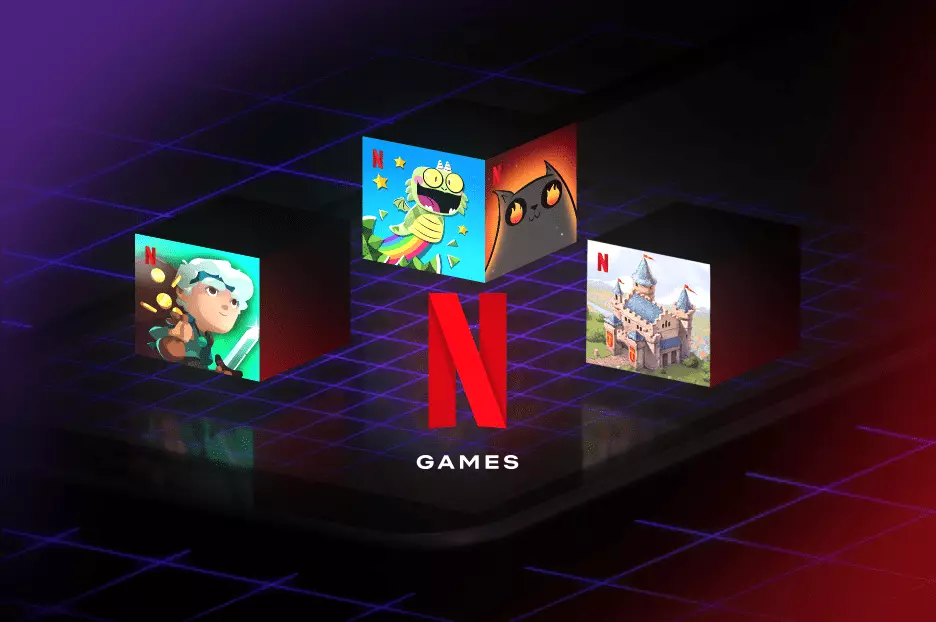Netflix had great aspirations for its foray into the world of gaming, especially after Mike Verdu, an acclaimed figure in the industry, was brought on board to spearhead the initiative involving generative AI. Only five months post-announcement, reports confirm that Verdu has departed Netflix Games, throwing the company’s plans into disarray. From his initial exuberance—where he heralded generative AI as a revolutionary force akin to the transformative era of the 1990s—the tone quickly shifted to something far less optimistic. Verdu’s resignation marks not just the loss of a leader but highlights the fragility of Netflix’s gaming ambitions, particularly in utilizing cutting-edge technology like generative AI.
The Risk of Over-Promising
Verdu’s confidence in generative AI’s potential was intoxicating. “GenAI is the next challenge,” he proclaimed in a LinkedIn post, igniting high expectations for what could come next in gaming. However, the enthusiasm was laced with ambiguity. The promise of innovation remained nebulous without tangible details or clearly articulated strategies. When analyzing the trajectory of tech companies, there’s a notable pattern: high-level excitement often precedes genuine substance. Netflix’s decision to anchor its game development strategy around generative AI while dealing with substantial layoffs raises questions. Did they over-promise their direction? Were they chasing a mirage that required more than they could invest?
Generative AI: An Ambitious Yet Uncertain Path
Generative AI, though a marvel, is not a universal fix for video game development challenges. It’s a powerful tool capable of enhancing narrative depth, creating dynamic environments, and enabling personalized gaming experiences. However, to leverage its full potential, companies need a solid foundation of talent, resources, and a clear vision—something that seems lacking at Netflix right now. Verdu’s swift departure may imply that the company was not fully prepared to integrate such groundbreaking technology into their business model, reflecting a broader trend where companies enthusiastically announce revolutionary initiatives but struggle to execute them effectively.
Market Dynamics: A Slower Path to Success
Interestingly, while the Netflix Games initiative was embroiled in concerns, the app saw its most downloaded titles coming from established franchises like Grand Theft Auto—outside of Netflix’s development. The contrast between existing blockbuster games and Netflix’s new entries indicates a preference among gamers for recognizable content over untested originals. The buzz around “Squid Game: Unleashed,” although impressive, fell short of delivering substantial subscriber retention. This circumstance underscores a sobering reality: Netflix faces a crossroads where its gaming efforts may need re-evaluation in terms of strategy and focus. Should they double down on original titles or pivot towards licensing, which minimizes risk but offers limited innovation?
The Future of Netflix Games: Challenges Ahead
Without a clear successor to Verdu, Netflix’s gaming division is poised for a period of uncertainty. The company has not provided any insights into who will take the reins or how they intend to pursue their generative AI ambitions. This lack of direction indicates that Netflix’s commitment to game development—especially utilizing generative AI—is waning. As they wrangle with potential decisions about whether to pursue in-house titles or license existing franchises, Netflix could find itself caught between ambition and reality, needing to thoughtfully reconsider how it invests its resources in what is still a burgeoning industry.
As gaming continues to evolve rapidly, the pressure for Netflix to adapt and innovate becomes increasingly crucial. The departure of Mike Verdu is not just a leadership change; it represents a significant pivot point in the company’s strategy. While the allure of generative AI remains, the path forward must be navigated with caution, pragmatism, and an acute awareness of market demands. Players are looking for sophisticated and engaging experiences rooted in familiarity coupled with innovation, and achieving this balance may be the ultimate test for Netflix in the crowded gaming landscape.

